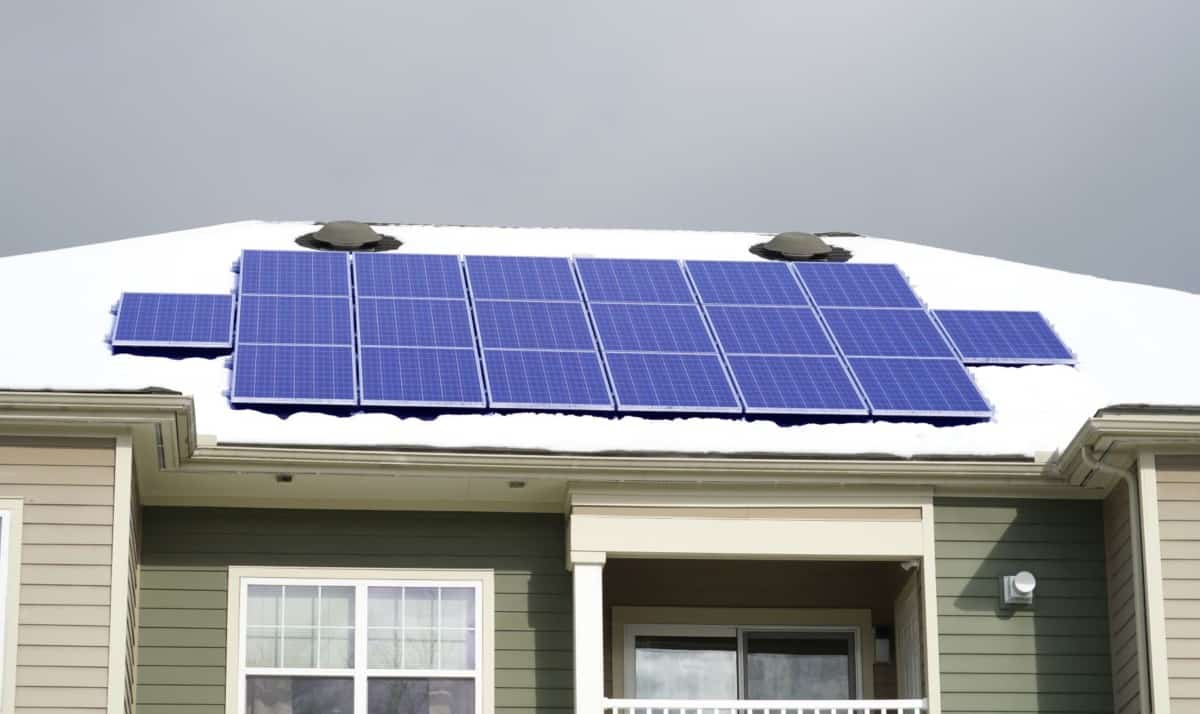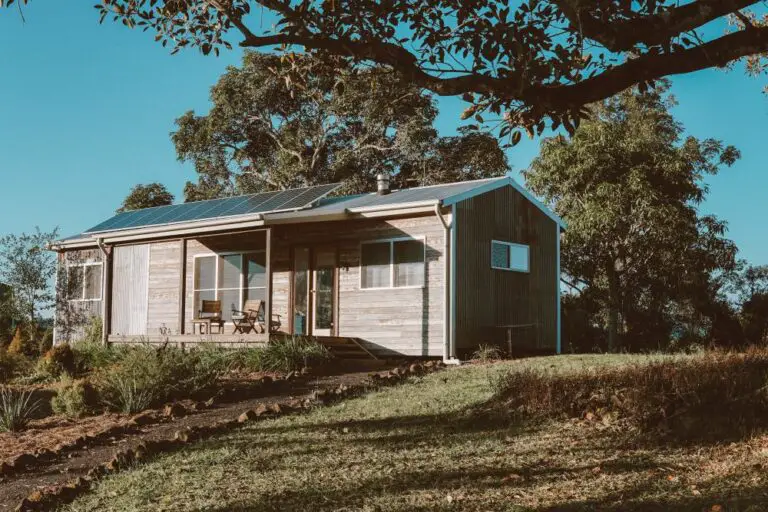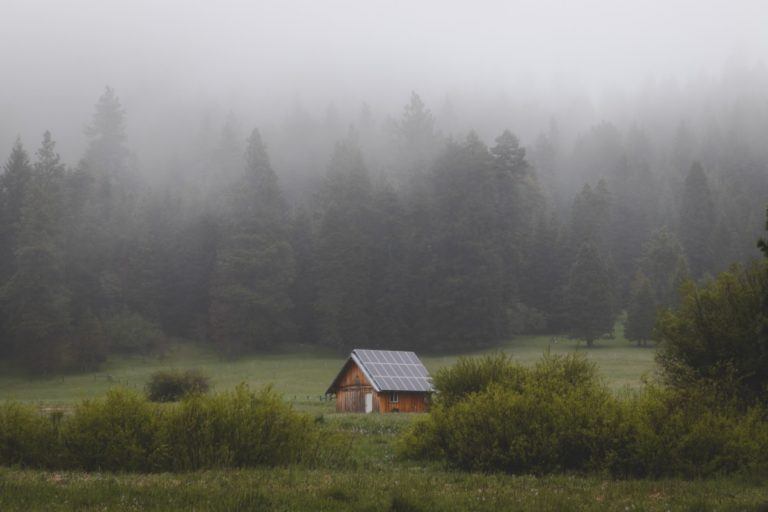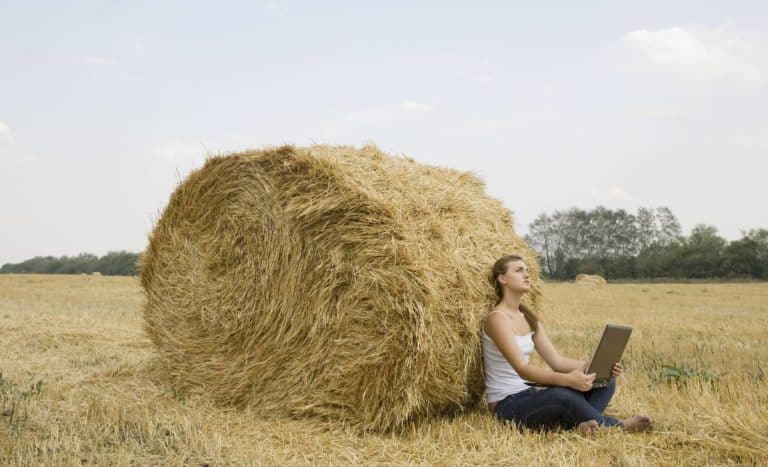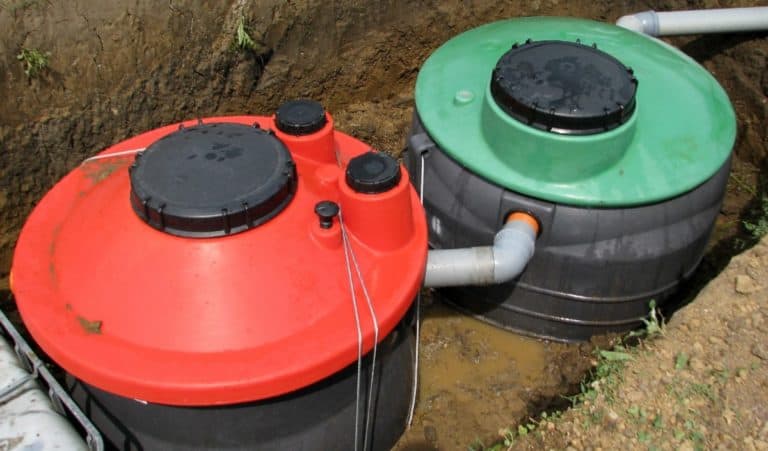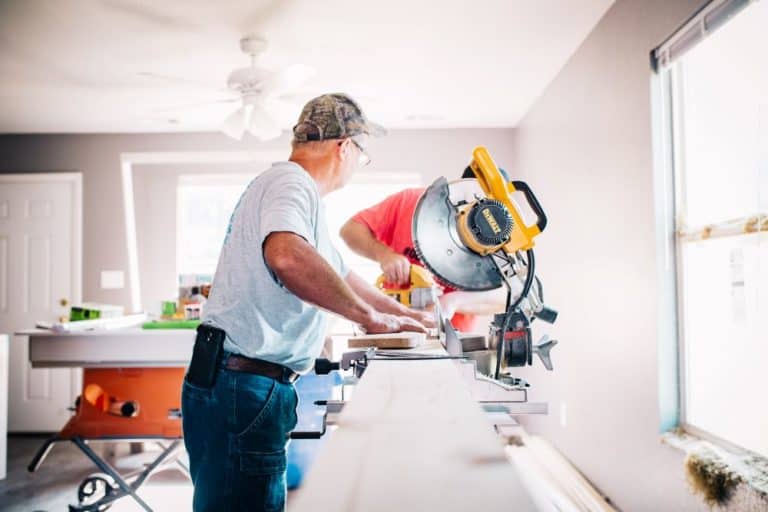How to Prepare an Off-Grid Home for Winter
One of the most significant challenges of living off-grid can be getting through your first winter.
How you prepare for an off-grid winter depends on your home and the local climate. Vital tasks include making adequate backups for power, heat, and water. You will need enough fuel for a backup generator and heat, most plumbing should be well insulated, and you may need to store food supplies.
Every off-grid home is different, but most will need to take some steps to ensure a smooth winter season. This guide will talk you through each stage of preparing your home, mainly if you live in colder climates.
Solar panels, batteries and power backups
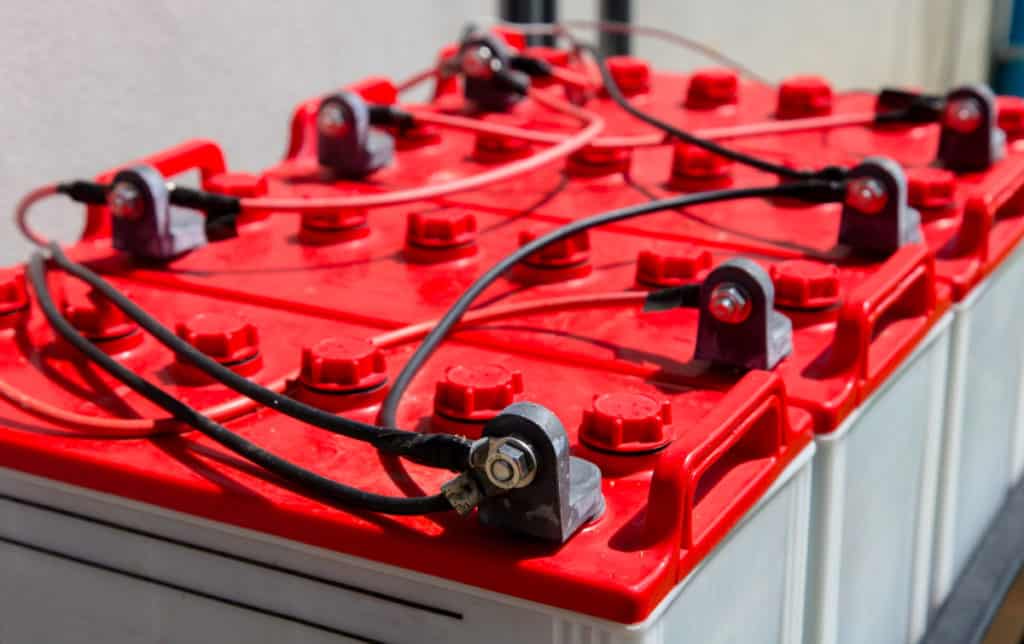
Maintaining an adequate power supply can be the main concern for off-grid homes over winter. If your solar panel system was sized based on the average amount of sun over this season, you would likely last until spring with no issues. However, you may still face several weeks without any sunlight falling on your panels.
Check out my recommendations for the best solar equipment.
Being ready for this situation is an essential part of preparing your home. To be without electricity in extreme cold, could for some, be fatal. During the fall, make your plans and decide what you will do. Here are some suggestions:
- Get a backup generator.
- Consider having a second backup generator.
- Reduce your reliance on your main supply, switch to low power light bulbs, use battery or propane lamps, look at other alternatives like propane fridges, etc.
- Unplug any appliances that you aren’t using.
- Heating systems can be one of the biggest drains on power, so using other systems like stand-alone propane heaters or wood-fired systems may be necessary.
- Look at other power supplies as backups for your solar panel system.
Further reading: 8 ways to generate off-grid electricity at home.
Solar panels over winter
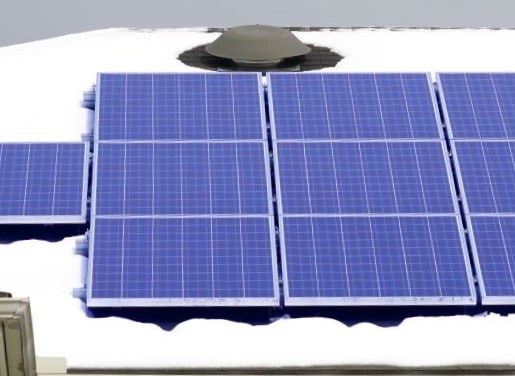
Before the worst of the weather, it’s necessary to give your panels a thorough clean to get any debris or dirt off them. Even small amounts of leaves or dirt can affect your supply. If they are clean going into winter, it will be easier to brush them off again if necessary.
If possible, keep a long-handled broom handy or a ladder for access; this will let you quickly clean the snow off them. The more regularly you clear your panels, the less like likely they will be to freeze up and become impossible to clear or use.
Related reading: How many solar panels do I need to run my home off-grid?
Preparing your generator
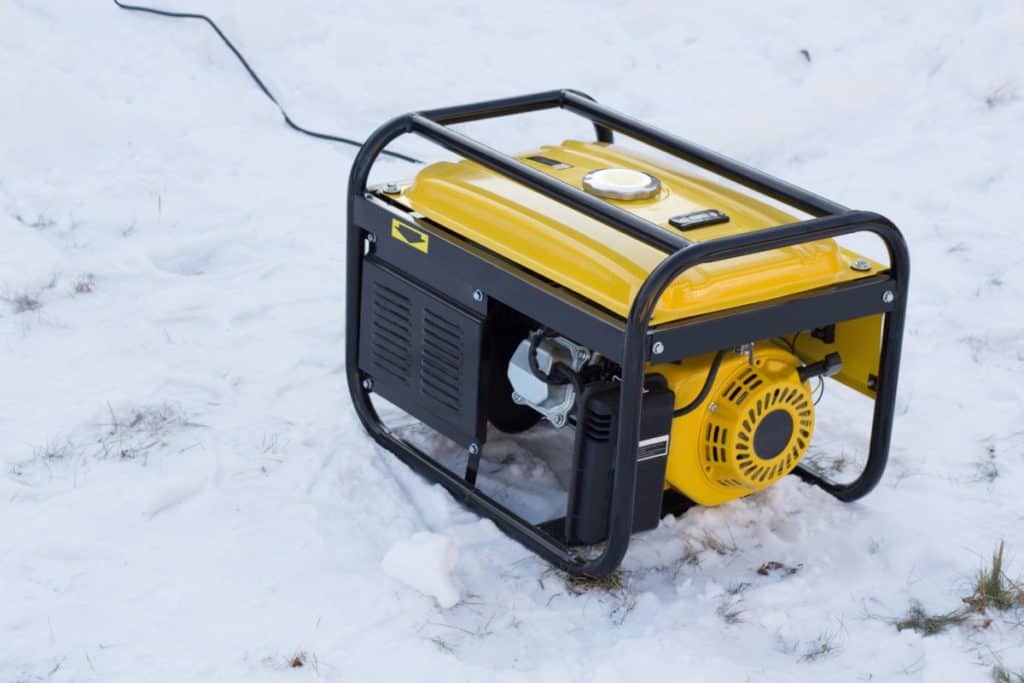
Some people who’ve gone off-grid prefer to use their generator as little as possible, but over winter, it may become essential. If the first time you use it is in the cold when it’s necessary, you run the risk of it failing to start.
As winter approaches, give it a thorough check, start it up, change the oil, and do any necessary maintenance. You may need to drain out any old fuel and top it up, so it’s ready to run correctly. It may be worth adding a stabilizer to your fuel if it’s going to be sitting unused for any length of time.
Then check you’ve got everything you need for a midwinter emergency; this could be spark plugs, oil, and enough fuel. Depending on how cold it gets in your area, you may need to look at ways to heat your generator shed to keep it at an appropriate temperature.
Getting batteries ready for winter
Most battery banks need some care and maintenance to ensure that they continue working for the maximum number of discharges. This is particularly true of lead-acid batteries. Here are some things you may need to do to ensure your cells are winter-ready:
- Lead-acid batteries often need to be regularly topped up with distilled water.
- Ensure that they are stored somewhere that will remain at a constant temperature and not experience rapid cooling.
- Check any information provided at purchase to see if they require further seasonal checks.
- Does your charge controller give you a readout on the charge of your battery bank? If not, you may need to install a stand-alone monitor to ensure you know when they may need a top-up from your generator.
- You may want to check the specific gravity using a hydrometer. This is a reading that can tell you the battery health, state of charge, and future performance. It may help you to identify any problems and prevent you from losing the capacity of your battery bank when it’s most crucial.
Related reading: What is the best battery for a solar power system?
How can I heat my house off the grid?
You can use your solar or stored power to heat your house; however, appliances that heat or cool often use the most substantial amounts of energy. If you find yourself with less power, using alternative heating systems may be necessary.
Also, if you were to have a power failure and you aren’t able to quickly fix it, you could be without essential heating. To prepare for this, it’s useful to have alternative room heaters and water heaters available.
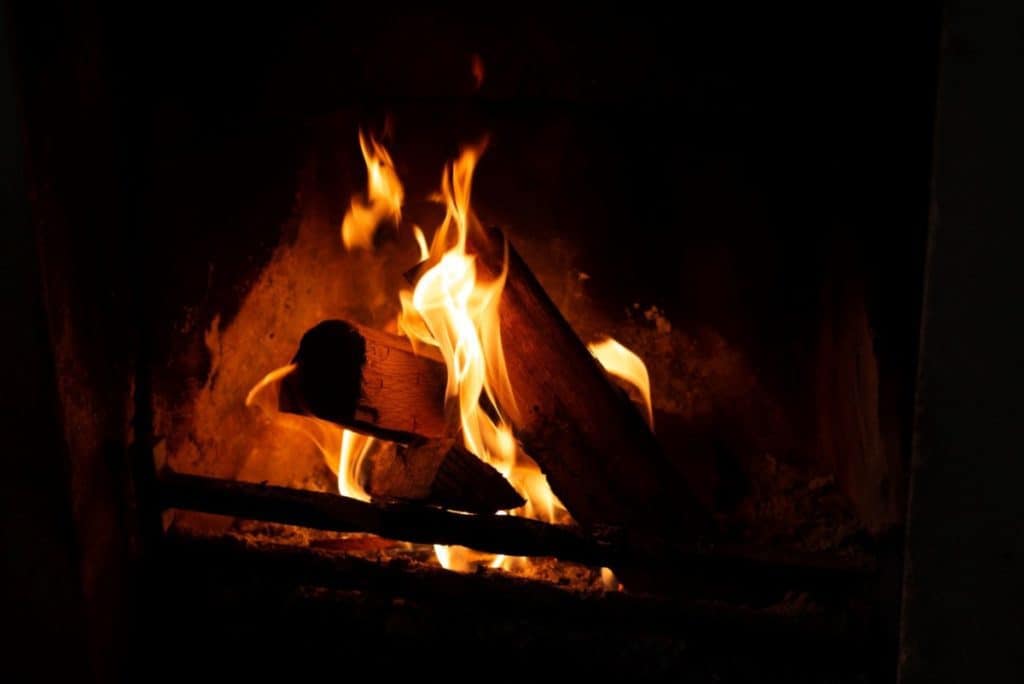
Propane heaters are helpful, but you can also use wood stoves or wood-fired heaters. Portable stoves can be used as back up cookers but are also useful if you need to heat up water. If you use wood-fired systems, ensure that you have enough wood chopped and ready to use. It’s worth having a store close to the house, so you won’t have to travel far if you get snowed in.
If you’re looking for a wood burner, the Ashley Hearth range is well made, stylish and efficient.
Also, in the fall, clean all ventilations or chimneys ready for the season. This will prevent you from having to do this during the cold weather.
Related reading: How can I heat water off-grid?
Water supply and plumbing
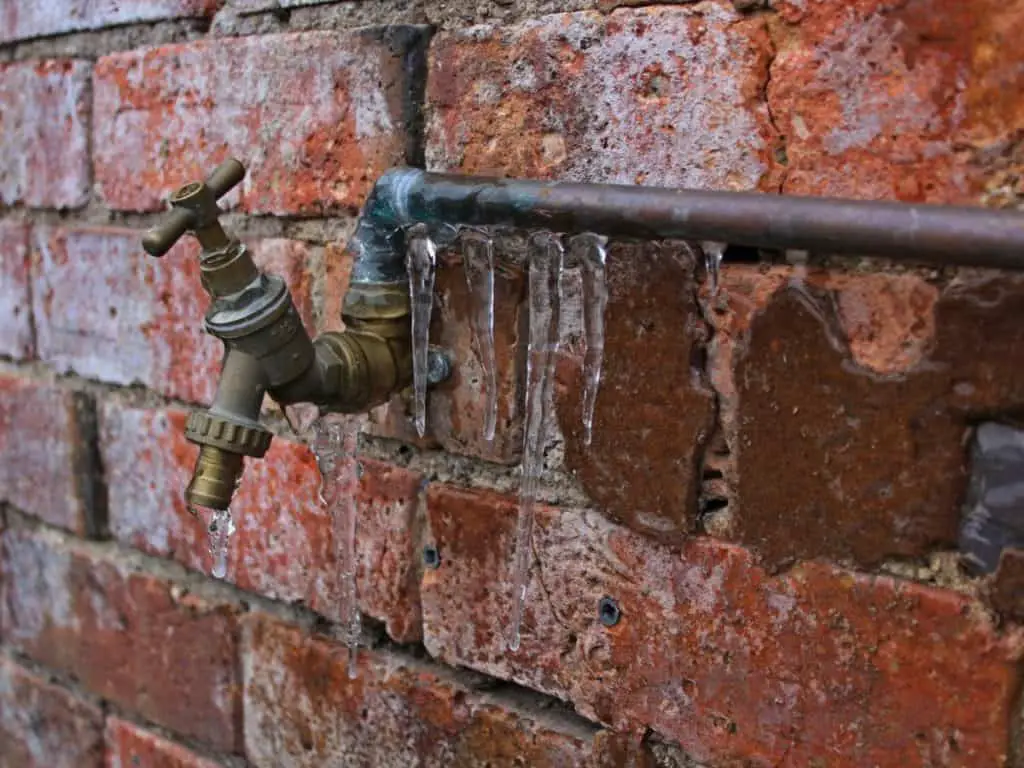
All home water systems requires a thorough check before winter. Without adequate insulation, water may freeze, damaging the pipes and causing leaks when they finally defrost. Before winter, check all your plumbing and empty and disable any non-essential systems. Assess the temperature that pipes may be exposed to and wrap those that may get cold.
If you source your water from a well or cistern that is likely to freeze, either look for a power-efficient way to keep it warm or start storing water in your house. Most underground storage tanks may likely be ok, but it’s worth finding out how cold it could get. Outside faucets should also be turned off and drained.
You may like to read my recommendations for water supply and plumbing equipment.
Washing and drying clothes in winter
Before the weather turns colder, it’s useful to wash any large items of clothing, rugs, or bedclothes. If you leave them till later, it will be nearly impossible to get them dry. You will also need to consider how you will dry clothes during the winter. Is there enough space inside when it gets cold?
Dedicating an inside area to drying may be necessary, its easier to ventilate one room without lowering the temperature of the whole house.
Water for poultry or livestock
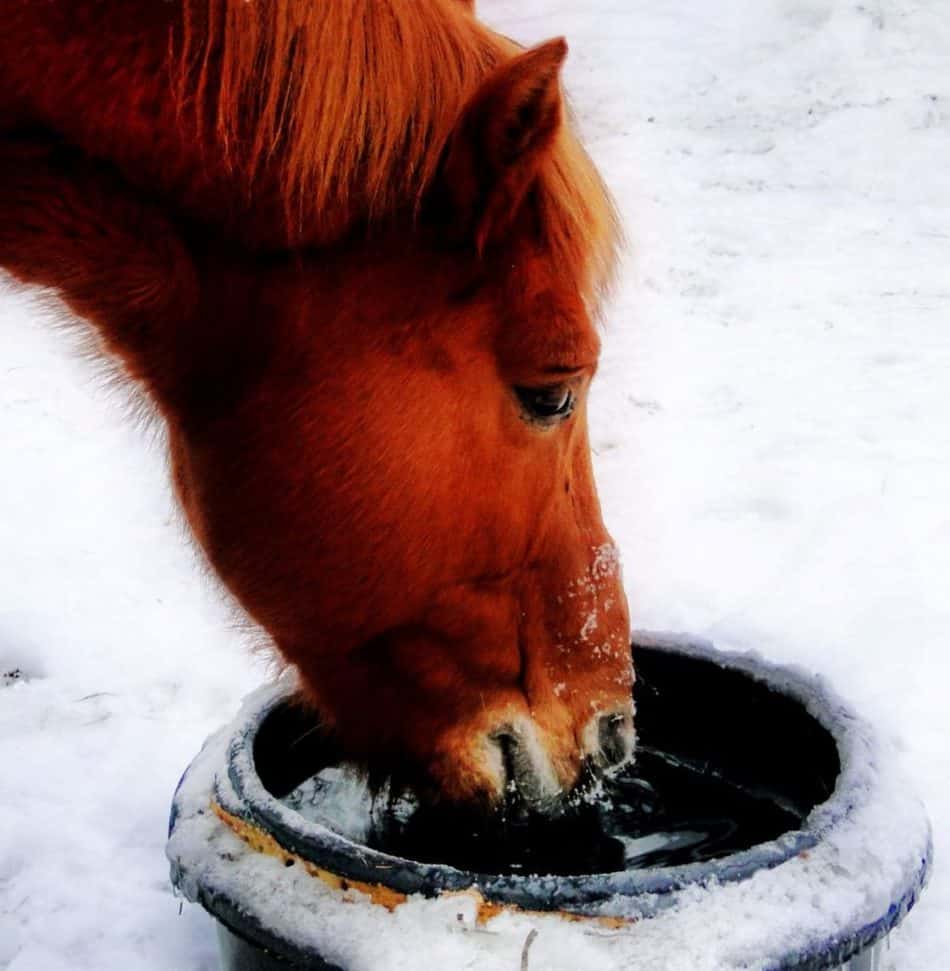
There are lots of great products available to help you keep any water feeders or stock tanks from freezing over, but most require large amounts of electricity. If you can’t spare the power, it’s vital to ensure that all containers are adequately insulated.
Stacking water feeders or tanks together can also reduce the chance of freezing. Heated water bottles can be placed under some feeders, but they only stay heated for a short while. In most cases, you may just have to break the ice or regularly replace the water.
Irrigation systems
Irrigation systems used in your garden should be drained and shut off. Whether you’re using them straight from your main supply or you’re directing your greywater waste for use on your fruit trees, it’s worth shutting the system down for the winter.
Do septic tanks work in winter?
In most situations, septic tanks will continue to work, as usual; however, in icy climates, they may freeze. This can damage pipes and slow the break down of the harmful bacteria. There are a few things you can do to minimize the risk of this:
- Use it regularly, keeping the water running regularly through pipes will help prevent any clogs or freezing.
- Compact soil in your leach field could prevent it from draining properly. This makes it more likely to freeze and prevent it from working correctly. To prevent this, make sure you never drive vehicles over the drainage area and aerate the soil before the winter.
- Check for any leaks throughout the year and repair them as soon as possible. Pre-existing leaks can be the cause of more extensive damage if they freeze.
Related reading: The complete guide to off-grid wastewater management.
Compost toilets in winter
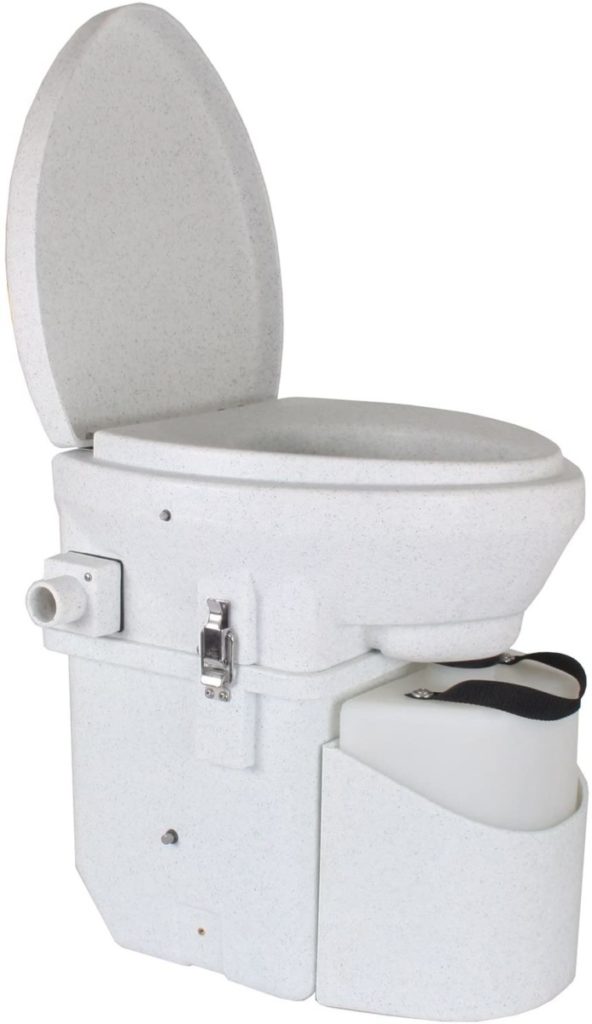
Composting toilets don’t require water, but you may need to make some small preparations for the colder weather. If you are unable to use an external composting toilet in the coldest weather, you will need to plan an alternative. Nature’s Head composting toilets are as odor-free as it’s possible to get, so they are an excellent option for setting up indoors. Check the price of a Nature’s Head toilet on eBay.
Whatever substrate you are using to put in your toilet like woodchips, or sawdust, you will need to prepare enough, bring it inside and keep it dry to be ready for use. The microorganisms responsible for the composting will continue to break down the waste unless it freezes, in which case they will soon resume the job when they defrost and begin to warm up again.
Food and provisions
Whether you grow and store your food, or you shop for your groceries, some simple preparations can make your life a lot easier during winter. If you grow some or all of your veg, your crops will need to be completely harvested.
Save any vegetable waste – As you prepare your harvest to be canned, preserved, pickled, or frozen, keep any vegetable waste like stalks and outer leaves. These can then be plowed back into the soil. Let it sit on top for a brief time then till it in. This will add nutrients to the ground over the winter, ready for the following season.
Plan means and store provisions – Meal plans are useful at any time, but over winter, they allow you to establish if you have enough of everything. This is most important if you live somewhere that may be cut off by the weather. Aim to store as much as you may need if that happens.
Also, prepare for other provisions, including warm clothes, etc. If you don’t have large amounts of freezer space, canning is a process that’s easy to learn and works well to preserve most foods for later use.
This video gives you a comprehensive introduction to canning:
Keep your freezer full – If you do use a freezer, try to keep them as full as possible, a full freezer is so densely packed, it will stay frozen for longer in the event of a power failure. You may want to use the cold weather to help preserve your food items, this is an excellent power-saving idea but be aware that temperatures can fluctuate rapidly, so its worth checking food regularly to prevent it from spoiling.
Gardener’s Supply Company stocks lots of useful equipment including everything you need to get started with canning.
Poultry and livestock
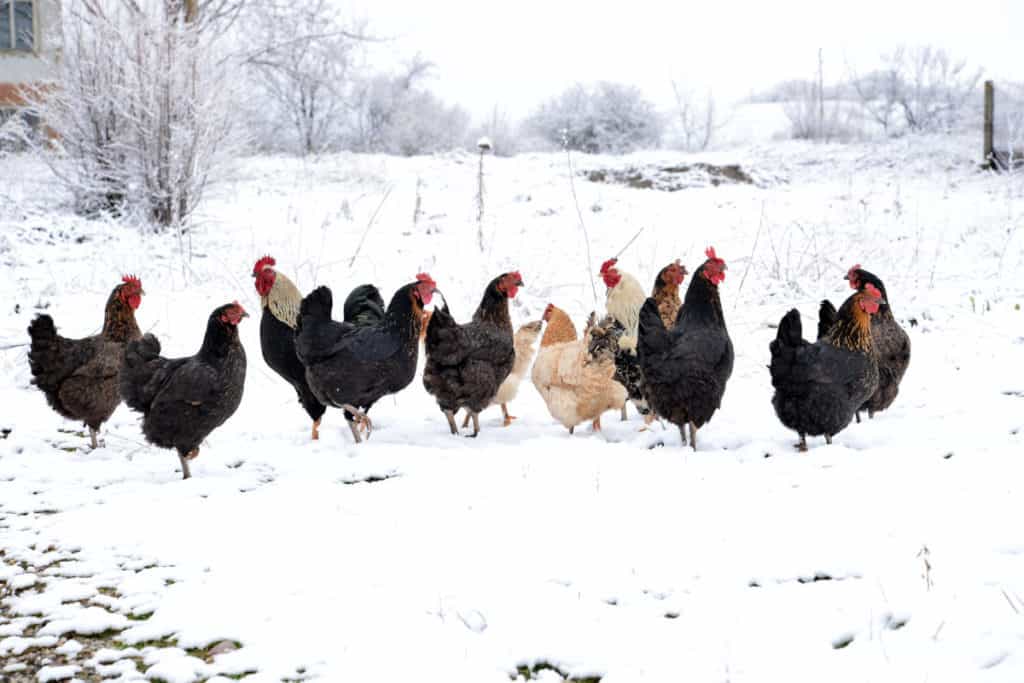
If you keep poultry or any livestock, your winter preparation must be even more extensive. As well as preventing any water from icing over, you may need to strengthen shelters and prepare the feed. First, if you keep animals for food, you may want to include them in your food prep and get them butchered and prepped ready to be frozen or canned.
If you’re keeping them over winter, it’s essential to remember that many animals increase their feed consumption in colder climates. When you’re budgeting for your year, it’s important to remember this; otherwise, you may find that you run out of your supply earlier than expected.
Related reading: How to keep chickens.
Food stores and shelter
Check your food stores and add an extra tarp if necessary to prevent the damp from getting in. It’s also worth considering if the current structures will hold up under the weight of any snowfall. If not, add some extra supports to prevent any damage. Most animal sheltering and chicken coops require lots of ventilation to avoid a build-up of moisture. During the worst of the weather, you may want to reduce the amount of ventilation and add some extra insulation.
Outside areas
Other general preparations include ensuring you can clear any snow if you need to get around outside. Make sure you get snow shovels or snow blowers in good repair and easy to access. This will save you hunting around for them or trying to repair them in the cold.
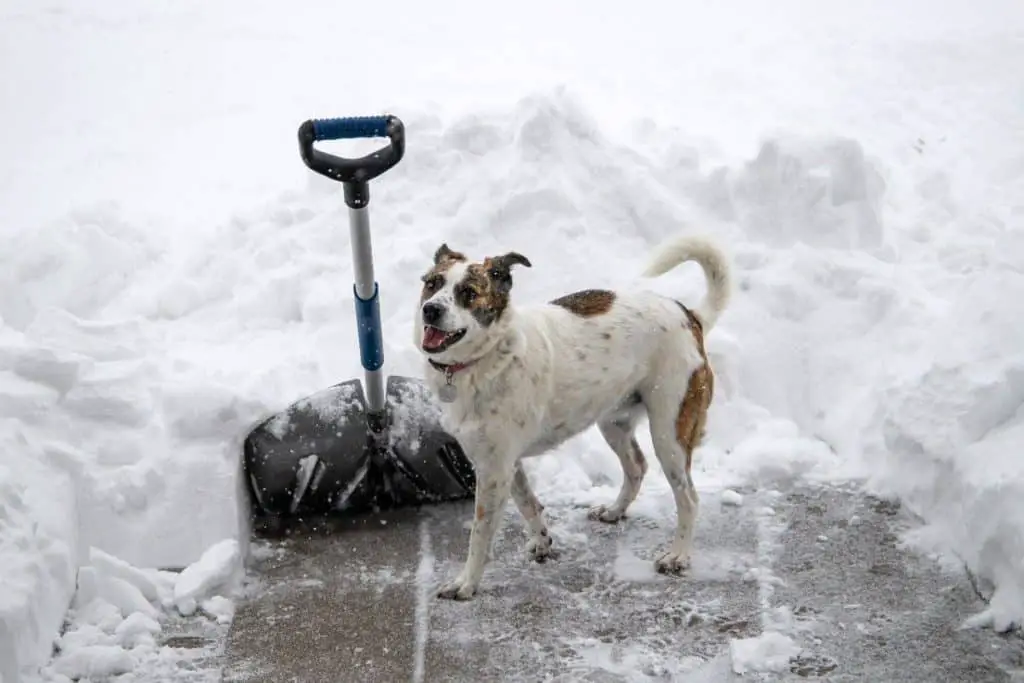
Useful items for winter
Here are a few things you might want to stock up on to help you have an easy winter:
- A plugin wattage monitor is a great way to find out how much your appliances use and which ones you need to minimize the use of until the sunnier weather.
- Heavy-duty tarps to protect woodpiles or animal feed
- Long non-abrasive brooms for sweeping snow off solar panels
- Batteries for torches, lamps and other small appliances
- Propane heaters
- Propane for any stoves, heaters etc.
- Battery-powered lamps and torches to add an extra light source without having to rely on your solar or generator power
- Pipe insulation, preformed insulation tubes are an incredibly easy way of preventing pipes from freezing.
- Stock tank deicers- these require lots of power, but if that isn’t an issue for you, they are a great way of preventing water from freezing.
- Canning equipment
- Sawdust for your compost toilet
- A backup generator
- Fuel, enough to last if you must regularly run your generator to top up your batteries
- Oil in case you need to top it up or change it
- Sparkplugs, it’s often cheap to get these and replace any that have become gunked up
- Distilled water for lead-acid batteries
Winter tasks
Here are all the winter tasks in list form:
During the fall
- Maintain and prepare a backup generator
- Plan in case your backup generator fails
- Swap bulbs to low power versions
- Reduce your homes power usage
- Unplug any non-essential appliances
- Prepare your home heating system and store fuel
- Thoroughly clean your solar panels
- Ensure your battery bank is stored correctly in a constant temperature
- Check batteries, and top up with distilled water
- Drain any non-essential plumbing
- Insulate any water systems that may get cold
- Stack poultry or livestock feeders together where possible and wrap them with insulation
- Strengthen any animal shelters
- Stock up with extra animal feed
- Harvest, butcher, prep, can and preserve any food
- Plan meals
- Stock up on food
- Aerate your leach field and prevent the soil from being compacted.
During winter
- Clear the snow from your solar panels
- Use your septic tank regularly to keep water moving through the pipes.
- Break any ice in feeders
- Break a small area of ice in any ponds your animals can access
Conclusion
It may be that your winter preparation requires no more than checking your solar panels and prepping your batteries. However, for some people, the process is a lot more extensive.
A successful winter prep is one that takes in to account the details of your specific situation. If you’re new to the area or this is your first winter since going off-grid, take some time to think through each possible scenario. The main aim of planning is not to give you loads of extra work but to allow you to get ahead of potential problems and minimize their damage.
Check out my recommendations for equipment that will help you take your home off-grid.
My Off-Grid Product Recommendations
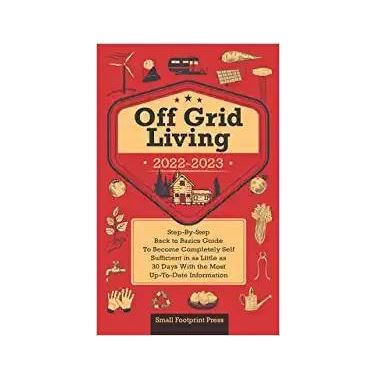
Useful Book: Off Grid Living 2022-2021 – This incredible step by step guide is a great read and gives you useful information about reaching self-sufficiency in just 30 days. Get the paperback on Amazon or read it free with a Kindle Unlimited subscription or listen to the audio version with Audible Plus membership.
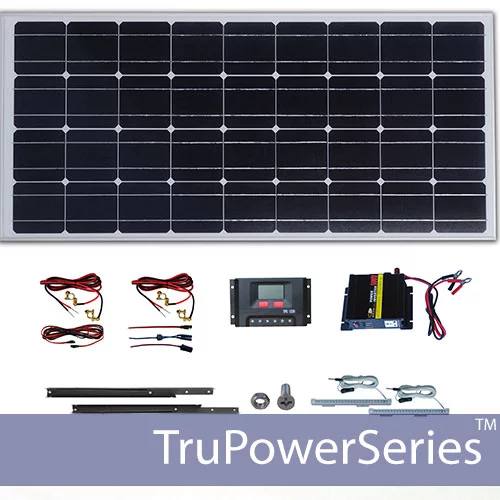
Small Solar Panel Systems: Silicon Solar – This is an excellent company that offers lots of products to get you started on your solar journey. Visit Silicon Solar.
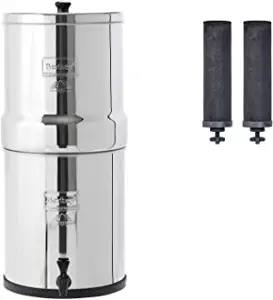
Family Water Filter: Big Berkey – For a fast, affordable water filter with no plumbing required, you can’t beat a Big Berkey gravity-fed filter like this one from Amazon.
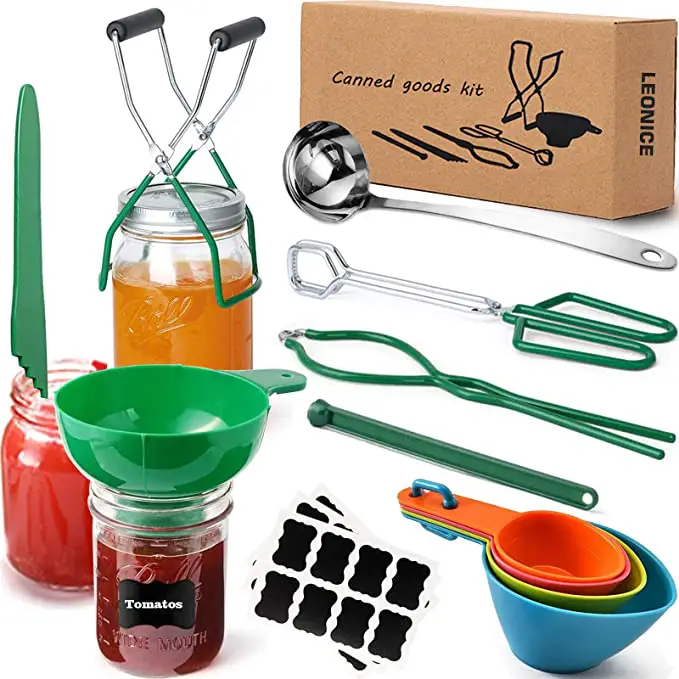
Canning Equipment – This canning starter kit, 22-quart Barton pressure canner and twelve-pack of Ball 16oz mason jars will help you preserve food as you work towards self-sufficiency.
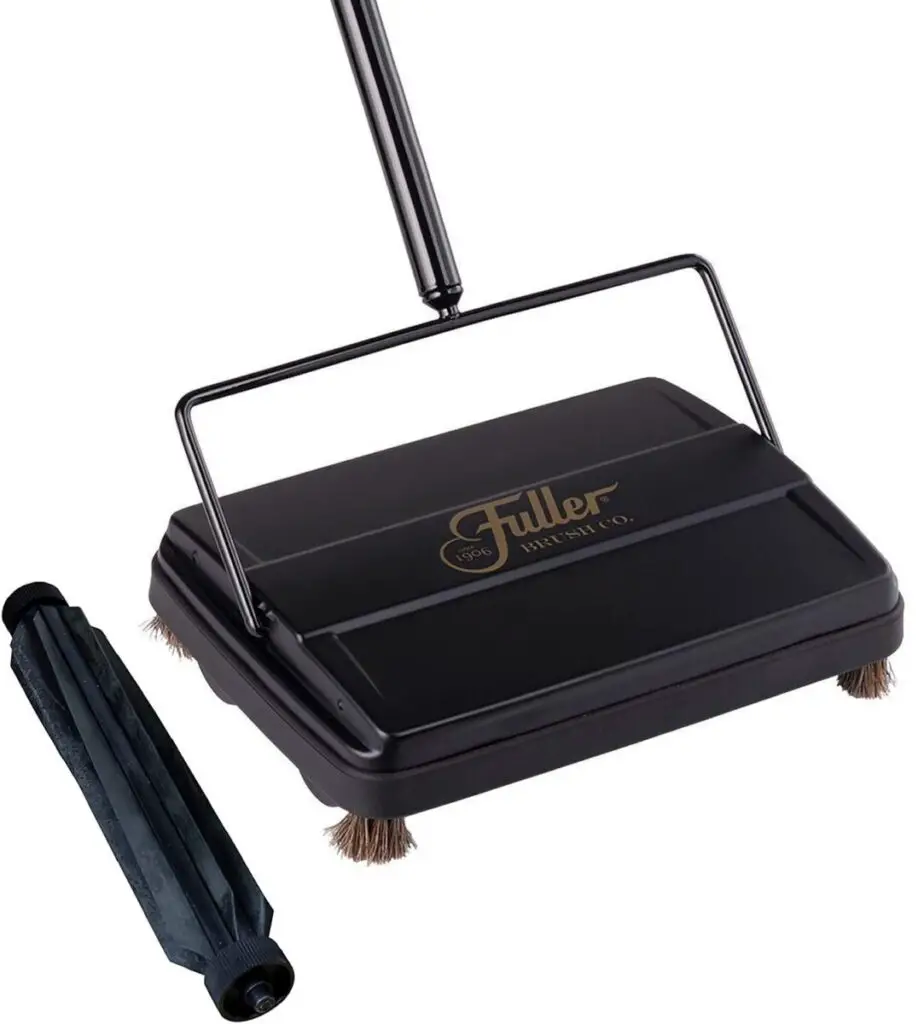
Cleaning: Fuller Carpet Sweeper –. This carpet sweeper is an ideal way to keep your home clean without using up your energy stores on vacuuming.

Handy Knife: Gerber Serrated Paraframe – This handy all-purpose knife is lightweight and ideal for all those little jobs around your home and garden.
